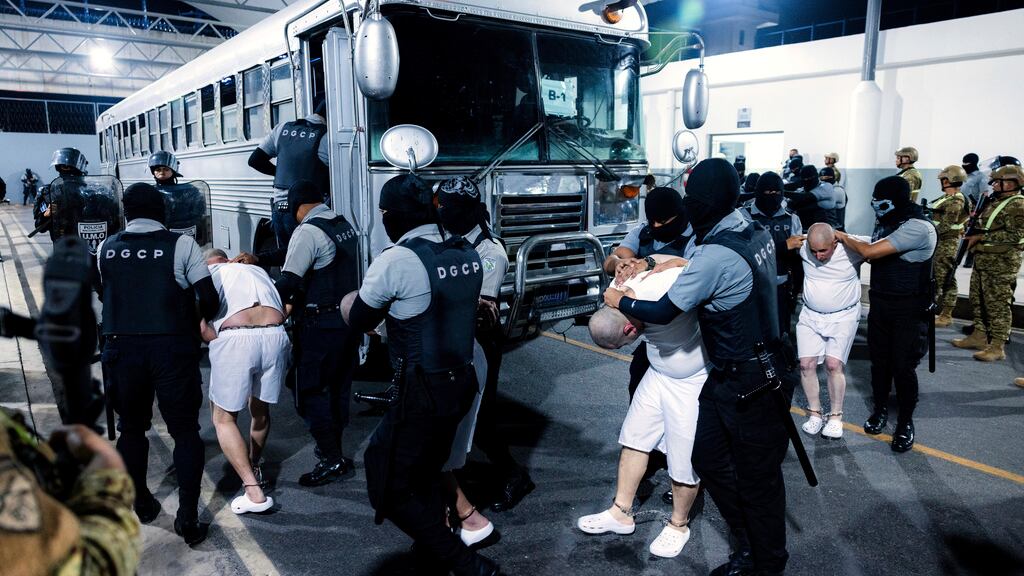The government of President Donald Trump has acknowledged having mistakenly deported a man from Maryland with protected legal status to Nayib Bukele’s jail in El Salvador, but is arguing against returning him to federal custody in the United States due to alleged gang ties.
PUBLICIDAD
Officials from the United States Immigration and Customs Enforcement (ICE) admitted in a court document on Monday night an “administrative error” in deporting the 29-year-old man from El Salvador, sparking immediate outrage from migrant rights advocacy groups.
PUBLICIDAD
Who is the person deported due to an error by the Trump administration?
Kilmar Armando Abrego García was arrested on March 12 after completing a shift as an apprentice sheet metal worker at a construction site in Baltimore, according to a complaint filed in federal court by his attorneys.
Abrego García was later sent to the Terrorism Confinement Center, or CECOT, in his native country, which according to activists, is plagued with abuses and where inmates are crammed into cells and never allowed to leave.
He was placed in CECOT despite an immigration judge’s decision in 2019 that he should not be deported to El Salvador because it had been established that he was “more likely not to be persecuted by gangs,” according to his lawyer’s lawsuit.
The demand states that Abrego García “left El Salvador when he was around 16 years old, fleeing gang violence.” The text then establishes that “starting in 2006, gang members had harassed, beaten, and threatened to kidnap and kill him to coerce his parents into succumbing to their increasing extortion demands.”
“Although he has been accused of ‘general gang affiliation,’ the United States government has never presented a shred of evidence to support this unfounded accusation,” the lawsuit stated, adding that Abrego García is not a member or affiliated with MS-13 or any other criminal or street gang.
MS-13 is one of the acronyms of Mara Salvatrucha, a gang organization with a presence in the United States and several Central American countries.
Abrego García’s wife later saw him in photos and prison videos, and identified her husband by his distinctive tattoos and two scars on his head, according to the complaint.
The Trump administration said in its court document that ICE “was aware of his protection against deportation to El Salvador,” but still deported Abrego García “due to an administrative error.”
The government argued against his return to the United States, citing alleged gang ties and stating that he is a danger to the community. The government stated that his gang ties were confirmed at a bond hearing in 2019 and ratified by the Immigration Appeals Board.
“This was an oversight, and the deportation was carried out in good faith based on the existence of a final deportation order and the alleged affiliation of Abrego García with MS-13,” wrote Robert Cerna, acting director of ICE’s Enforcement and Removal Operations field office, in a statement to the court.
